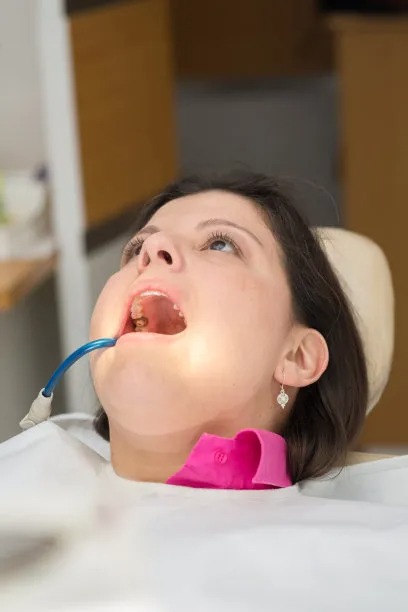Summary: Periodontal disease significantly impacts oral health and overall wellbeing, especially among diverse populations. It leads to various health complications, affects mental health, and exacerbates existing health disparities due to socio-economic and cultural factors. This article explores four key areas: the health implications of periodontal disease, its socio-economic consequences, the cultural factors influencing oral health, and strategies for prevention and management in diverse communities. By understanding these facets, we can better address the needs of diverse populations affected by this condition, promoting a holistic approach to oral health.
1. Health Implications of Periodontal Disease

Periodontal disease, or gum disease, is primarily characterized by inflammation and infection of the gums and supporting structures of the teeth. It can manifest as gingivitis or progress to periodontitis, leading to tooth loss if left untreated. One significant health implication is the link between periodontal disease and systemic health issues, including heart disease, diabetes, and respiratory problems. The inflammation associated with periodontal disease can exacerbate these conditions, leading to detrimental effects on overall health.
Furthermore, untreated periodontal disease can lead to a cycle of poor health, where overall health issues negatively impact oral health and vice versa. For example, individuals with diabetes are at a higher risk of developing periodontal disease, which can, in turn, make it more challenging to control blood sugar levels. This interplay indicates that periodontal disease should not be viewed in isolation, as its ramifications ripple throughout the body.
Additionally, the link between periodontal disease and mental health cannot be overlooked. Studies have shown that individuals with periodontal disease often experience higher levels of anxiety and depression. This connection is likely due to the physical pain and social stigma associated with poor oral health, affecting one’s self-esteem and overall mental wellbeing.
2. Socio-Economic Consequences
The socio-economic consequences of periodontal disease are profound, especially in diverse populations. Individuals from lower socio-economic backgrounds often have limited access to dental care, contributing to higher rates of periodontal disease. This lack of access can stem from various factors, including financial constraints, lack of insurance, and inadequate availability of dental services in certain communities.
The financial burden of treating periodontal disease can also lead to a vicious cycle. Upon diagnosis, individuals may face expensive treatments that they cannot afford, leading to a delay in seeking necessary care. This delay often results in more severe health complications that require even more extensive and costly interventions over time.
Moreover, poor oral health directly impacts employability and productivity. Individuals suffering from periodontal disease may miss work due to pain or treatment appointments. This absenteeism not only affects their financial stability but also perpetuates the cycle of socio-economic disadvantage, particularly in marginalized groups who already face multiple barriers to economic advancement.
3. Cultural Factors Influencing Oral Health
Cultural factors play a significant role in shaping attitudes toward oral health and periodontal disease across diverse populations. In many cultures, traditional beliefs and practices influence how oral health is perceived and managed. For instance, some communities may prioritize home remedies over professional dental care, underestimating the importance of preventive treatments for periodontal disease.
Language barriers can also exacerbate the situation by hindering effective communication between healthcare providers and patients. This misunderstanding can lead to misdiagnoses or inadequate treatments, further perpetuating the prevalence of periodontal disease in certain populations. Health education initiatives must be culturally sensitive and linguistically appropriate to effectively bridge this gap.
Furthermore, stigma related to oral health can discourage individuals from seeking help. Understanding these cultural nuances is crucial for developing targeted interventions that resonate with diverse populations and encourage better oral hygiene practices to combat periodontal disease.
4. Strategies for Prevention and Management
Effective strategies for prevention and management of periodontal disease must be multifaceted, addressing the unique challenges faced by diverse populations. Community-based oral health programs can play a pivotal role in raising awareness about periodontal disease and its implications. These programs can provide education tailored to specific cultural contexts, empowering communities to take proactive steps toward better oral health.
Improving access to dental care is also vital. Policymakers need to prioritize the expansion of dental services in underserved areas and create financial assistance programs to aid those without adequate insurance. Such initiatives can significantly reduce the prevalence of periodontal disease among marginalized groups.
Moreover, collaboration between dental professionals and other healthcare providers can enhance the overall approach to treating patients with periodontal disease. Integrating oral health screenings with general health check-ups can promote early detection and foster a holistic approach to health management, improving outcomes across the board.
Summary: The significant implications of periodontal disease on oral health and overall wellbeing highlight the necessity for targeted interventions in diverse populations. Addressing the health implications, socio-economic consequences, culture-based attitudes, and effective management strategies can create a more equitable healthcare landscape. Recognizing the complexity of this issue is essential for fostering healthier communities and improving quality of life.
This article is compiled by Vickong Dental and the content is for reference only.
Vickong Dental
Vickong Dental is a large medical group established in Hong Kong in 2008 by professors from well-known medical universities in Guangdong and Hong Kong, as well as medical doctors from key national '985' universities (including Master's supervisors and senior professors). The chain of branches brings together expert dentists with PhDs and Master's degrees from Hong Kong and Mainland China, committed to providing high-quality dental treatment.
"Vickong Dental Practices the University Motto of 'Healing and Serving Society,' with a Stable Operation for Sixteen Years. It Has Been honored with Hong Kong Enterprise Leaders's Choice,' and is a Global Trusted Implant Center for the Nobel Implant System. Recommended by Hong Kong Metro Broadcast and Guangdong Television, it Serves Customers from Over Thirty Countries and Regions, Gaining the Trust and Favor of Citizens from the Guangdong-Hong Kong-Macau Greater Bay Area and Surrounding Cities.

Thousands of customers' unanimous praise
The most recognized and highly recommended dental service by customers in the Guangdong-Hong Kong-Macau Greater Bay Area
We Ensure You Receive Detailed Care and Attention Here
Hong Kong standards, Shenzhen prices, Your Trusted English-speaking dentists

Vickong Dental Medical-Grade Instrument Disinfection Process
Vickong Dental Medical-Grade Instrument Disinfection Process

Vickong Dental Chain: A Warm and Comfortable Environment for Treatment






Appointment Hours

Q&A
Why choose Vickong Dental?
Vickong Dental practices the university motto 「Medicine to Benefit Society」, with each branch bringing together highly qualified dentists with doctoral and master’s degrees from Hong Kong and the Mainland, and has maintained seventeen years of steady operation。Recipient of 「2024 Hong Kong Enterprise Leaders Brand」, 「2025 Hong Kong Enterprise Leaders Brand」, a Nobel Biocare Global Trusted Implant Center, and a brand recommended by Metro Radio Hong Kong and Guangdong TV。
To date, we have served customers from more than thirty countries and regions,earning exceptionally high word-of-mouth recognition and trusted recommendations from residents across the Guangdong-Hong Kong-Macao Greater Bay Area and surrounding cities
We have eight major branches in Zhuhai、Shenzhen,and a consultation and service assurance center in Hong Kong,so you can book a free consultation at any time for any questions,which is very reassuring.
If I do not accept the quotation after the CT scan, will I be charged??
No! As long as the actual treatment has not started, you will not be charged any fees.
Will there be any additional charges during the treatment process?
No, there won’t be any additional charges. Before treatment begins, we will clearly explain the treatment plan and its corresponding fees. Only after the patient agrees and signs the consent form will we proceed with the dental service.
Can I pay in Hong Kong dollars?
Yes. Vickong Dental accepts payment in Hong Kong dollars. The amount will be converted based on the exchange rate of the day, and the applicable rate will be clearly communicated to you in advance.
Can I reschedule my appointment at any time?
Yes. Please contact us via **WeChat** or **WhatsApp** as early as possible, providing your original appointment time and details, along with your preferred new date and time slot for rescheduling.













